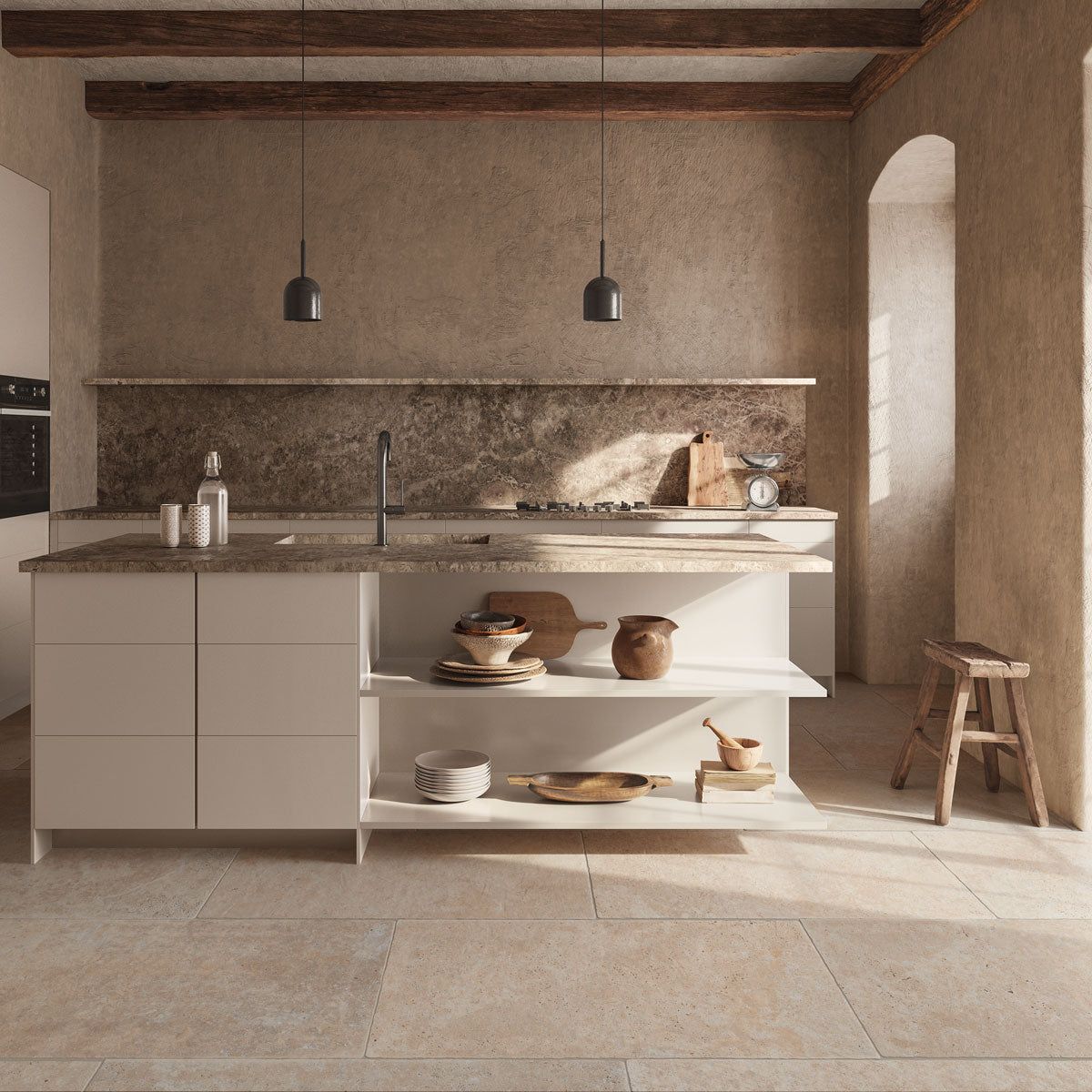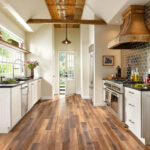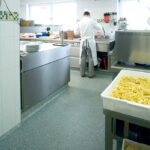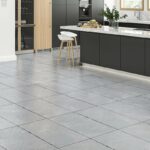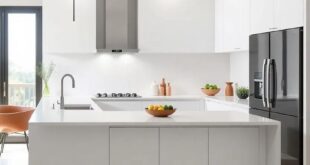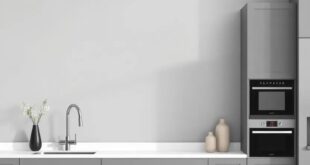When it comes to designing a kitchen, one of the most important aspects to consider is the type of flooring you choose. The kitchen floor not only has to be durable and able to withstand heavy foot traffic, but it also needs to be easy to clean and resistant to spills and stains. With so many options available, it can be overwhelming to decide which flooring material is best for your kitchen. Here, we will discuss some of the most popular options for kitchen flooring and their pros and cons.
One of the most common flooring materials for kitchens is ceramic tile. Ceramic tile is durable, easy to clean, and comes in a wide range of colors and patterns. It is also water-resistant, making it an ideal choice for a room where spills and splashes are common. However, ceramic tile can be cold and hard underfoot, so it may not be the most comfortable option for those who spend a lot of time standing in the kitchen.
Another popular choice for kitchen flooring is hardwood. Hardwood floors are warm and inviting, and they can add a touch of elegance to any kitchen. They are also durable and can be refinished if they become scratched or damaged. However, hardwood floors are not water-resistant, so they may not be the best choice for a kitchen where spills are common. It is also important to note that hardwood floors can be more expensive than other options.
Vinyl flooring is a budget-friendly option that is becoming increasingly popular in kitchens. Vinyl is durable, easy to clean, and water-resistant, making it a practical choice for a kitchen. It also comes in a wide variety of colors and patterns, allowing you to customize the look of your kitchen. However, vinyl flooring can be prone to tearing and may not be as long-lasting as other options.
For those looking for a more eco-friendly option, bamboo flooring is a great choice for a kitchen. Bamboo is a renewable resource that is both durable and sustainable. It is also water-resistant and easy to clean. However, bamboo flooring can be more prone to scratching than other materials, so it may not be the best option for a high-traffic kitchen.
In conclusion, when choosing a floor for your kitchen, it is important to consider factors such as durability, ease of cleaning, and comfort. Each flooring material has its own pros and cons, so it is important to weigh these factors before making a decision. Ultimately, the best kitchen floor for you will depend on your budget, lifestyle, and design preferences.
 Decorationg Interior Design
Decorationg Interior Design
